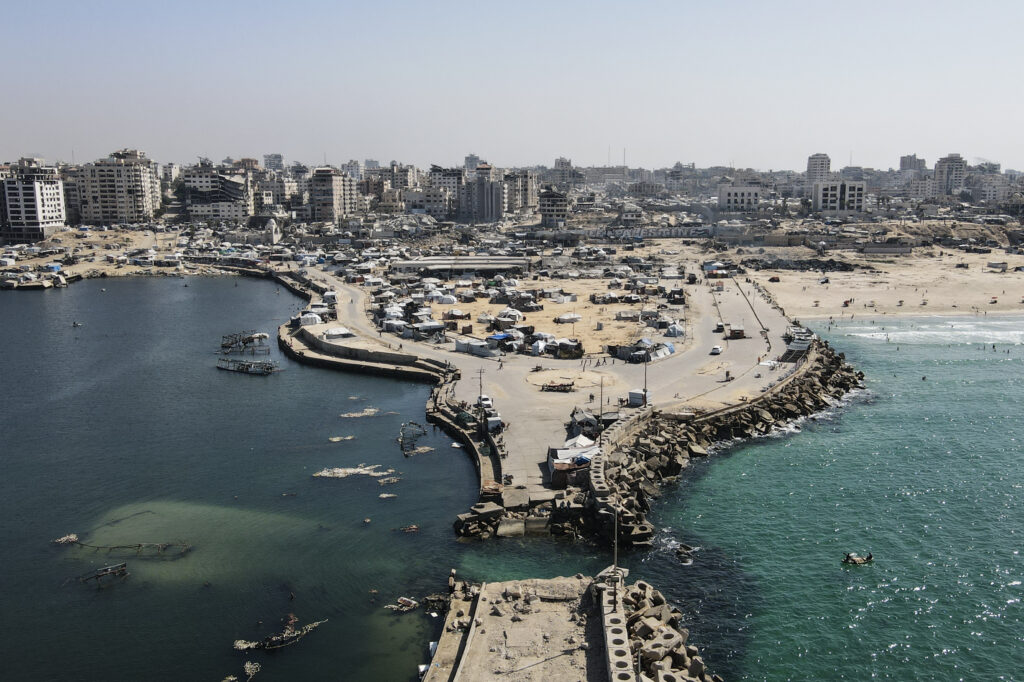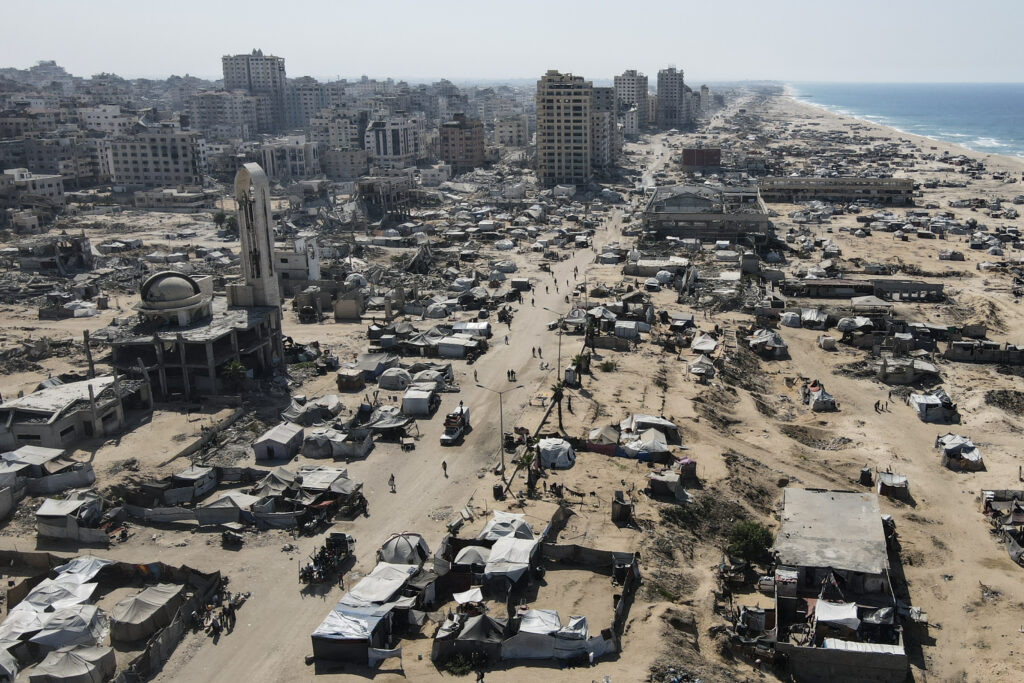US piles pressure on Hamas to respect Gaza truce
US President Donald Trump warned Hamas it will be wiped out if it breaches the Gaza ceasefire, as Vice President JD Vance travelled to Israel on Tuesday to shore up the fragile truce.Vance was due to land and Trump’s special envoy Steve Witkoff and son-in-law Jared Kushner were already in Tel Aviv, where they were meeting Israeli hostages released by Hamas after two years of captivity in Gaza.The vice president was expected to meet Witkoff, Kushner and US military experts monitoring the truce. According to Israeli media reports he will meet Israeli leaders, including Prime Minister Benjamin Netanyahu on Wednesday in Jerusalem.After Israel said Hamas killed two soldiers on Saturday and accused the group of stalling the handover of hostages’ bodies, Washington has redoubled efforts to cement the fragile Gaza deal Trump helped to broker.- ‘Continued violation’ -Trump says he believes the deal is still holding and that the Palestinian militant group understands what will happen if they breach it. “They’ll be eradicated, and they know that,” he told reporters at the White House.US ally and fellow truce mediator Qatar, meanwhile, accused Israel of what its leader called the “continued violation” of the now 11-day-old ceasefire. “We reiterate our condemnation of all Israeli violations and practices in Palestine, particularly the transformation of the Gaza Strip into an area unfit for human life,” Emir Sheikh Tamim bin Hamad Al Thani told legislators.Hamas has denied any knowledge of Saturday morning’s deadly clash in the southern Gaza city of Rafah.Israel responded after the soldiers’ deaths with an intense wave of bombings the territory’s health ministry said had left 45 Palestinians dead.Hamas’s Gaza leader, in Cairo for talks with deal mediator Egypt and Qatar, issued a statement expressing confidence the truce will hold. “What we heard from the mediators and from the US President reassures us that the Israeli war on the Gaza Strip has ended,” Khalil al-Hayya said. Hayya insisted Hamas was serious about retrieving the bodies of the remaining 15 hostages held in Gaza, but warned that the search has been hampered by the level of destruction in the territory two years of Israeli bombardment.”We face extreme difficulty in recovering the bodies and continue our efforts; we have said that we need advanced heavy equipment for search and recovery,” he said.Both sides say they are committed to the US-backed truce despite the weekend’s violence, and Israel confirmed Hamas handed over the body of a deceased hostage on Monday, taking the total to 13 of the 28 it had pledged to return.Netanyahu’s office said: “We will not compromise on this and will spare no effort until we return all of the deceased hostages, every last one of them.”On Monday, Netanyahu — who is under pressure from hardliners in his government to abandon the deal and resume the fighting — said he and Vance would discuss “the security challenges we face and the diplomatic opportunities before us”.- ‘Yellow Line’ -The ceasefire, which went into effect on October 10, established an outline for hostage and prisoner exchanges, and proposed an ambitious roadmap for Gaza’s future. But its implementation has quickly faced challenges.Under Trump’s 20-point plan, Israeli forces have withdrawn beyond the so-called “Yellow Line”, which soldiers are busy marking with painted concrete blocks.This leaves them in control of around half of Gaza, including the territory’s borders, but not its main cities.The war, triggered by Hamas’s October 7, 2023 attack on Israel, has killed at least 68,216 people in Gaza, according to the health ministry in the Hamas-run territory, figures the UN considers credible.The data does not distinguish between civilians and combatants but indicates that more than half of the dead are women and children.Hamas’s 2023 attack resulted in the deaths of 1,221 people, mostly civilians, according to an AFP tally based on official Israeli figures.



